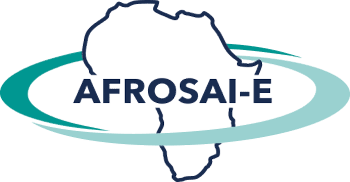We are
AFROSAI-E
AFROSAI-E is uniquely positioned to provide credible insights into the progress of our members.
We have an unparalleled depth and breadth of knowledge about the historical and current challenges our member SAIs face individually and collectively. This enables us to effectively assess future opportunities and match SAI needs with capacity-building initiatives for outcome-driven implementation at the SAI level.

Our Vision
To make a difference in the performance of SAIs

Our Mission
We commit to support and cooperate with our member SAIs to enhance their institutional capacity to successfully fulfil their audit mandates, thereby making a difference in the lives of citizens

Our Values
Professional, Innovative and Collaborative
For more information, refer to our Statutes or Integrated Annual Reports:
STRATEGIC PLAN
Our strategic vision for 2020 to 2024
The ultimate achievement of the outcomes as detailed in this strategic plan, is dependent on successfully matching SAI needs with the secretariat-driven capacity development opportunities / interventions and SAIs taking ownership to implement these learnings at SAI-level.
Strategic Goals:
-
1
Professionalising public
sector accountancy -
2
Empower SAIs for greater
audit impact and quality -
3
Transform SAI organisational
capabilities for greater impact -
4
Lead by example and
deliver on our mandate
For more information, refer to our Strategic Plan 2020-24

Our governance structure
The ICBF (Institutional Capacity Building Framework)
In responding to the changes, pressures and challenges in the public sector, SAIs should continuously develop their professional and institutional capacity to discharge the requirements of their mandates most efficiently and effectively. One of the methods used to measure the capabilities of SAIs in our region is the ICBF – developed to support the formulation of goals and objectives and to direct the SAI’s activities.
ICBF Self-Assessment Report
Based on the annual ICBF self-assessment questionnaire that member SAIs complete. It gives a regional perspective on the performance and progress of member SAIs during the 12 months against five institutional domain areas.

Independence and Legal Framework

Human Resources

Independence and Legal Framework

Organisational Management

Audit Standards and Methodology
We play a facilitative role in empowering SAIs towards the better performance of their mandates.

Create opportunities for our members to share their knowledge and experiences and establish peerto- peer support networks.

Implement targeted in-country initiatives to train, support and capacitate members on specific focus areas.

Establish country and regional quality assurance practices and conduct triennial quality assurance reviews to monitor compliance with the ISSAIs.

Research and develop technical guidance manuals, handbooks, template guidance, research papers and e-learning programmes aligned with the ISSAIs and responsive to emerging issues.

Support members in assessing their development needs annually through our ICBF Self-Assessment survey.

Conduct regional and sub-regional training workshops on specific audit and institutional focus areas.
What We Do
To make a difference in the performance of SAIs

We are committed to professionalising public sector accountancy in Africa.
As co-founder, partner and current host of the African Professionalisation Initiative (API), we take a leading role in enhancing the accounting and auditing service delivery to the citizens of Africa. The API is an independent non-profit organisation. Its primary objective is to strengthen the capacity and knowledge base of accounting and auditing professionals in the African public sector. www.professionalisation.africa
We empower SAIs for greater audit impact and quality.
By proactively developing technical guidance, we support over 10 000 auditors in the region to comply with the ISSAIs and respond to emerging issues.
- Technical audit manuals on financial, compliance, performance, information systems audit and quality management.
- Technical guidance on the audit of extractive industries, environmental audit and sustainability assurance, and audit of donor funds.
- We continuously research and develop papers, guides and materials, for example on integrating Big Data in the public sector, audit of disaster situations, the resilience of SAIs in sub-Sahara Africa during the COVID-19 pandemic etc.
- Value-adding audit tools: Public Finance Management Reporting Framework tool, AFROSAI-E Audit Software (A-SEAT), IT and IT audit Self-Assessment tools.


We aim to transform SAIs’ organisational capabilities for greater impact.
To mobilise the collective knowledge and experiences within the region, we create peer-support networks. Through these networks, accelerated support programmes and coordinated bilateral support initiatives, we strive to ensure no SAI gets left behind.
- Advocacy for and guidance on SAI Independence Frameworks.
- Technical Guidance in Human Resource Management and Communication and Stakeholder Relations.
- Value-adding institutional tools: Culture Values Assessment (CVA), IntoSAINT interventions, monitoring and evaluation regional working group, HR Assessment tool, gender mainstreaming interventions.
- Senior Leadership and Management Development programmes to enhance the capacity and capabilities of SAI leaders.
We lead by example and deliver on our mandate.
Through our robust governance structure of oversight and reporting, we strive to lead by example. By adopting a comprehensive monitoring and evaluation framework and online system to track and monitor our strategic and operational targets, we transparently report to our members, donors and stakeholders on our performance.

Our annual reporting suite includes:

Integrated Annual Report

State of the Region: ICBF Self- Assessment Report

Monitoring & Evaluation Report
ORGANISATION
International Organisation of Supreme Audit Institutions in Africa
AFROSAI-E is the English language subgroup of AFROSAI, the African branch of the International Organisation of Supreme Audit Institutions. AFROSAI-E performs an enabling role in the region by sharing information with its members and supporting them towards the better performance of their mandates.
Our Donors and Partners
It is gratefully acknowledged that the achievement and aspiration of AFROSAI-E would not be possible without the encouragement and ongoing support of other international institutions.


Audit
Subcommittee
Human Resources
Subcommittee
Finance
Subcommittee
Capacity Building
Subcommittee
The AFROSAI-E Leadership Structure
Our Governing Board consists of the heads of the 26 member SAIs and is the supreme authority. The Board members meet annually, and each Auditor-General is assigned to serve on one of the four oversight subcommittees:
AFROSAI-E Governance Structure

Responsibilities
COMPLAINTS POLICY
Transparent, Safe and Accountable Environment
The purpose of the policy is to ensure that there is a framework and a mechanism for the transparent and consistent handling of complaints lodged against AFROSAI-E or its staff. A further purpose of the policy is to promote a safe, accountable and responsive work environment for staff who disclose information of occupational detriment, or unlawful or corrupt conduct by AFROSAI-E or its staff.
This Policy has been in effect as of 23 April 2020
Complaints can be sent to: [email protected]
EXECUTIVE SECRETARIAT
Committed to the Cause, Passionate about People
The Auditor-General of South Africa hosts the Executive Secretariat of AFROSAI-E. The Secretariat is subject to the laws of South Africa and is furthermore governed by the Statutes and Regulations. The employment arrangements of the Secretariat personnel consist of a mixture of staff seconded from other SAIs, staff appointed and funded directly by AFROSAI-E and staff funded by the AGSA.
Contracts Awarded
Contracts awarded through open competition for procurement of goods, works and services.



